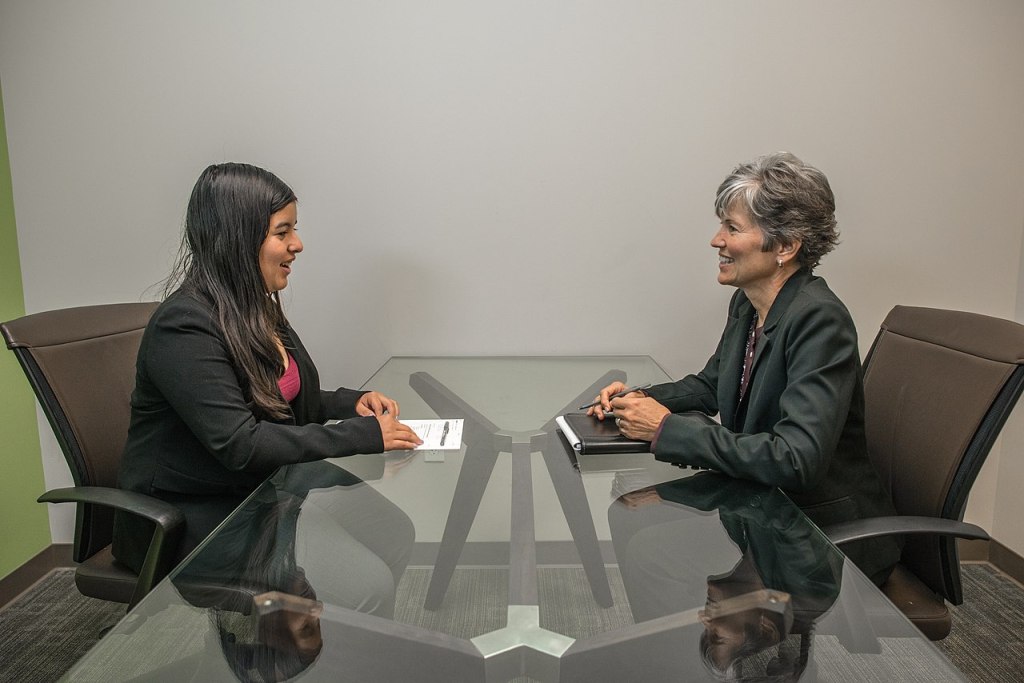
I am Erica, and I am the Senior Manager of the Community Relations Specialists—a team that for years has connected the communities and the Wikimedia Foundation teams to discuss and collaborate on products, features, projects, and more.
Since joining in 2013, among other things, I’ve had the privilege of assisting in hiring several people (some of them with plenty of experience of our communities, like me).
Here are the few things that I wish I had known back in the day as a candidate, and that I’d like everyone to know now about applying for a job at the Foundation.
Before Applying
- Don’t waste time: apply as soon as you read about the opening. It may close sooner than you think, and the talent pool is literally as wide as the world, as we almost always hire for roles that allow for remote working.
- Feeling like you aren’t a 100% match with what we’re looking for? If the role truly appeals to you, please apply anyway. Something you should know is that your application is confidential, and it won’t affect your ongoing activities with Wikimedia, if any. On top of this, applying and not getting the job is not going to look bad on you if you decide to apply for future roles as well; it could even improve your chances of landing in another role that is a better fit at a later time.
- Work on your résumé/CV now if you haven’t updated it in a while. Prepare it in advance so that when a role that you’re interested in opens, you’re ready to go. Remember that hiring managers are reviewing lots of applications, and unless you’re applying for an academic role where you need to showcase your published work, it’s advisable to keep your résumé concise to no more than 2 pages.
- In addition to checking our website, follow our profiles on social media (such as Twitter or LinkedIn) to make sure you’re one of the first to hear about new positions.
- If you happen to have a connection with people who work at the Foundation, give them a heads-up that you’re considering to apply for a job, especially if you have actively collaborated with them in the past in any capacity. It’s even better if you can provide them with your CV and cover letter (see below). They may be in a good position to discuss your strengths, and I bet they’ll be happy to submit an endorsement, at the very least. Not everyone knows that asking for someone in your network to refer you for a position is standard practice in the hiring world, so I encourage you to go for it even if, maybe because of cultural differences, it feels uncomfortable to you.
When Applying
- Read the job posting carefully. Unless stated otherwise, every document you send our way should be in English. If the ad asks you for a cover letter, please do your best with it, as it is very likely to weigh at least the same as your curriculum vitae. Even if it may not be customary where you live, try to consider it as the first task you get assigned—we will appreciate the effort! If we ask you to answer a question or we give you an assignment, these are going to be crucial for our early assessments. So do your research, and at the same time feel free to ask any questions even at this stage, as we want you to feel confident and to be successful.
- Take time to refresh your knowledge on Wikimedia. Our 2030 Movement Strategy, for instance, is a good place to start. The hiring team will want to know how we can work together—bringing your prior learnings and experience, to advance our shared vision of free access to knowledge for the world.
At the Interview
- Bring your curiosity! You may be about to start a new job in an exciting environment which, although popular, may still be a bit opaque, even for people who are already familiar with the movement. Hence, we’re ready for all of your questions to help you ultimately decide if this is going to be the workplace of your dreams!
After the Interview
- If you don’t get selected—please don’t give up. If working for the Foundation is something you truly desire, do know that there are new openings all the time. Many people, including myself, didn’t land here at their first attempt!
Editors note: This post was updated in December 2021 with additional advice by the author.

Can you help us translate this article?
In order for this article to reach as many people as possible we would like your help. Can you translate this article to get the message out?
Start translation